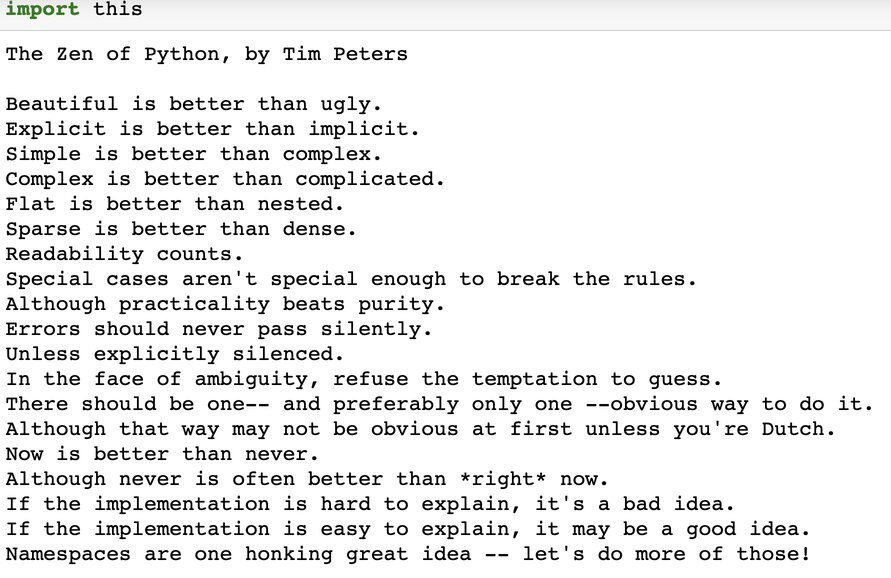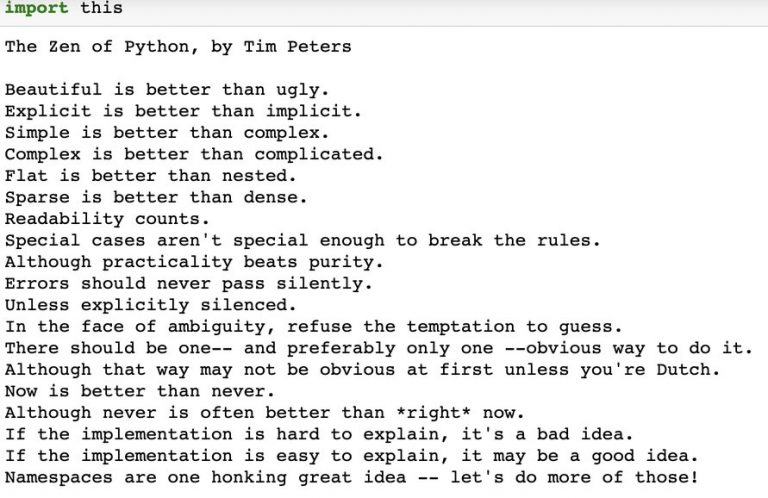I am presently learning python programming language, and it has not been easy grasping the language; just like any new skill set, I am taking it a step at a time, trusting the process and learning/practicing day in day out. I recently came across the “Zen of Python” written by software developer Tim Peters as a python design philosophy.
The Zen of Python is a collection of 19 “guiding principles” for writing computer programs that influence the Python programming language design. Software engineer Tim Peters wrote this set of principles and posted it on the Python mailing list in 1999.

- Beautiful is better than ugly.
- Explicit is better than implicit.
- Simple is better than complex.
- Complex is better than complicated.
- Flat is better than nested.
- Sparse is better than dense.
- Readability counts.
- Special cases aren’t special enough to break the rules.
- Although practicality beats purity.
- Errors should never pass silently.
- Unless explicitly silenced.
- In the face of ambiguity, refuse the temptation to guess.
- There should be one—and preferably only one—obvious way to do it.
- Although that way may not be obvious at first unless you’re Dutch.
- Now is better than never.
- Although never is often better than right now.
- If the implementation is hard to explain, it’s a bad idea.
- If the implementation is easy to explain, it may be a good idea.
- Namespaces are one honking great idea—let’s do more of those!
To view the zen of python on your python interpreter type “import this.”
Writing elegant and beautiful code is an art form, as every programmer solves problems differently. The goal should not be to write perfect code; the goal is to write code that works and solves the problem you intend to solve.
All the best in your quest to get better. Don’t Settle: Live with Passion.
